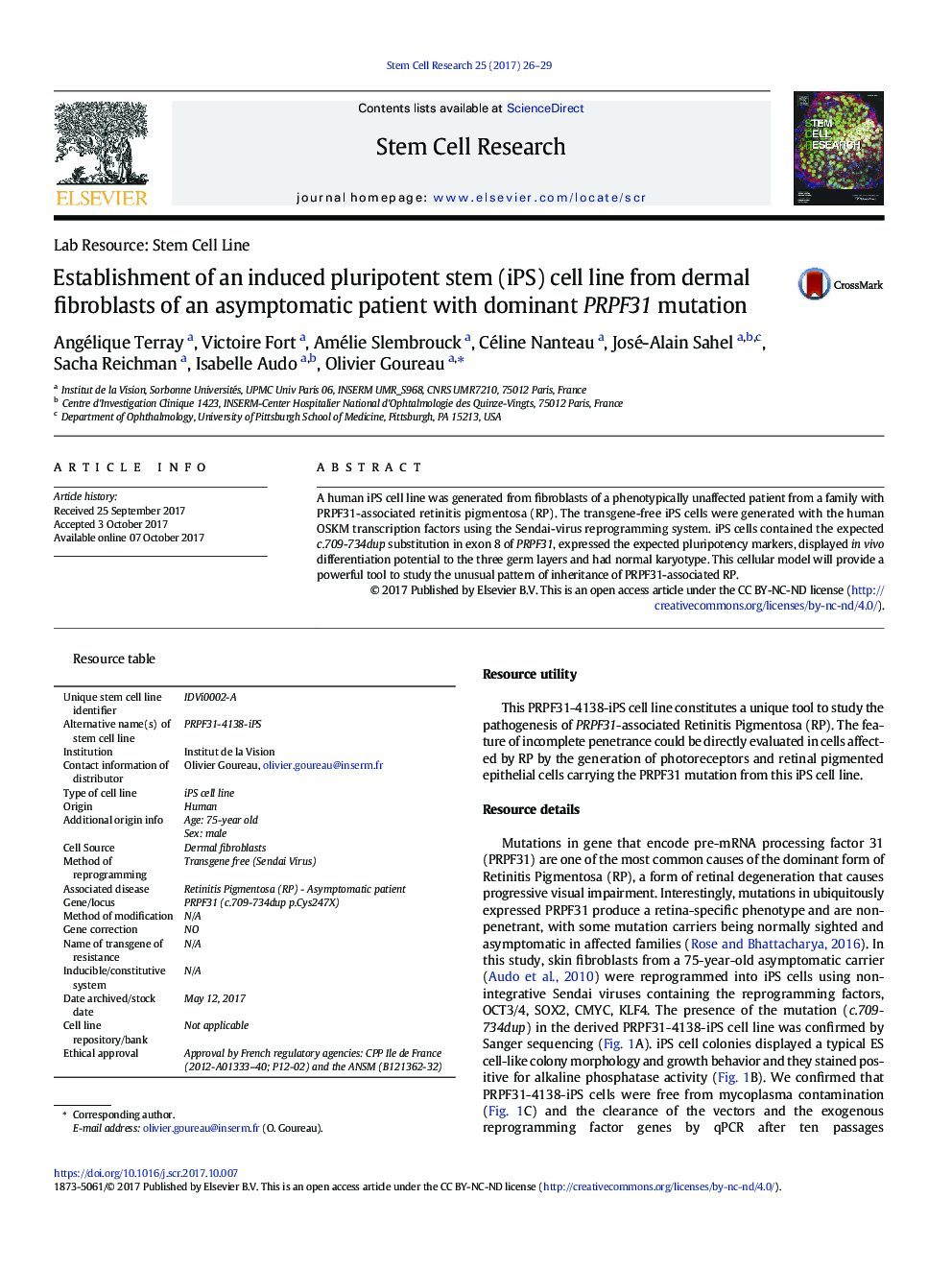| Article ID | Journal | Published Year | Pages | File Type |
|---|---|---|---|---|
| 5522587 | Stem Cell Research | 2017 | 4 Pages |
Abstract
A human iPS cell line was generated from fibroblasts of a phenotypically unaffected patient from a family with PRPF31-associated retinitis pigmentosa (RP). The transgene-free iPS cells were generated with the human OSKM transcription factors using the Sendai-virus reprogramming system. iPS cells contained the expected c.709-734dup substitution in exon 8 of PRPF31, expressed the expected pluripotency markers, displayed in vivo differentiation potential to the three germ layers and had normal karyotype. This cellular model will provide a powerful tool to study the unusual pattern of inheritance of PRPF31-associated RP.
Related Topics
Life Sciences
Biochemistry, Genetics and Molecular Biology
Biotechnology
